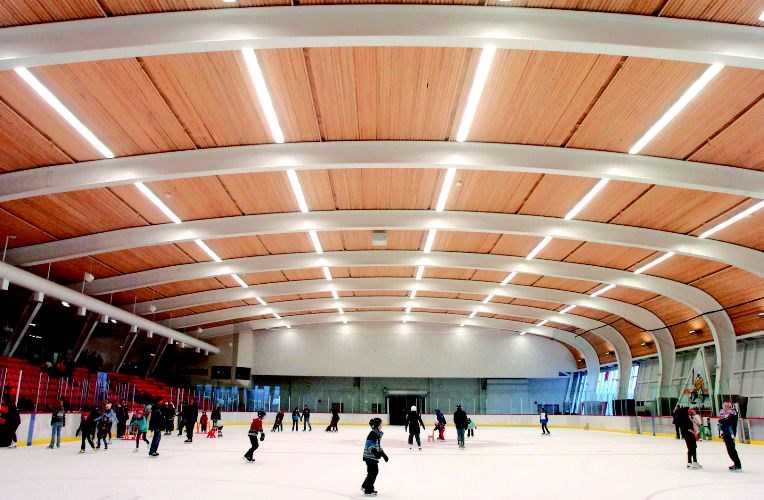A planned $4.445 million upgrade to the Kin Centre’s ice refrigeration system and condensers will reduce the arenas’ environment footprint, improve safety and add redundant chilling capacity in case of a breakdown.
City supervisor of project delivery Chris Bjorn said nearly $3.3 million of the project will be paid for with a provincial grant announced on Monday, with remainder of the cost coming from the city’s capital budget.
“When we applied for the grant, we went to enough detail to come up with the numbers. This project should result in a 70 per cent reduction in greenhouse gasses,” Bjorn said. “That’s good news, because the Kin Centre is one of the largest (carbon dioxide) producers in the city.”
The new condensers will also cut the water consumption of the Kin 1, Kin 2 and Kin 3 arenas by roughly 40 to 50 per cent, he added.
The new refrigeration system will use 70 per cent less ammonia than the current system, and the new condensers will also have lower ammonia charges, he said. The provincial government changed the regulations for ammonia use in ice refrigeration, following an ammonia leak at Fernie Memorial Arena which killed three men on Oct. 17, 2017.
The new system will meet the new, safer standards, while saving the city roughly $20,000 per year in operational costs, Bjorn said.
Currently Kin 1, Kin 2 and Kin 3 all operate using a single chiller system, he added. The new design will have two chiller systems.
“One could supply all of the ices, but we’ll run off of two,” he said. “If one of them fails for some mechanical reason, we’ll still be able to make ice.”
Bjorn expected the detailed design work to be completed this year, with installation planned for 2023 or 2024. The city will try to time the system upgrade for the off season to minimize the impact to user groups, he added.
"It is quite a big thing to design the whole system," Bjorn said.
The $3.3 million provincial grant to the city was announced on Monday as part of the CleanBC Local Government Climate Action Program. The province has committed a total of $76 million over three years to support climate action by local governments.
"Local communities have been leaders in the fight against climate change, and this new program will accelerate their actions to cut pollution and build more resilient communities for everyone,” Environment Minister George Heyman said in a statement issued on Monday. “We've listened to local leaders and designed a program that responds to their community priorities with funding they can count on each year."
Grants were provided to local governments based on population.
"Local governments have led the way on climate action and this new provincial program will help municipalities further strengthen their work building cleaner, more resilient communities," Union of B.C. Municipalities president and Quesnel city councillor Laurey-Anne Roodenburg said in a statement issued on Monday. "By working together with the province, we've helped make sure local government priorities are reflected in the design of this new program."
Vanderhoof councillor Brian Frenkel said the grants are especially important for smaller, rural communities.
“The new fund will provide important funding to secure stronger action and collaboration across governments to help rural communities reduce emissions and respond to their own local climate impacts,” he said.



